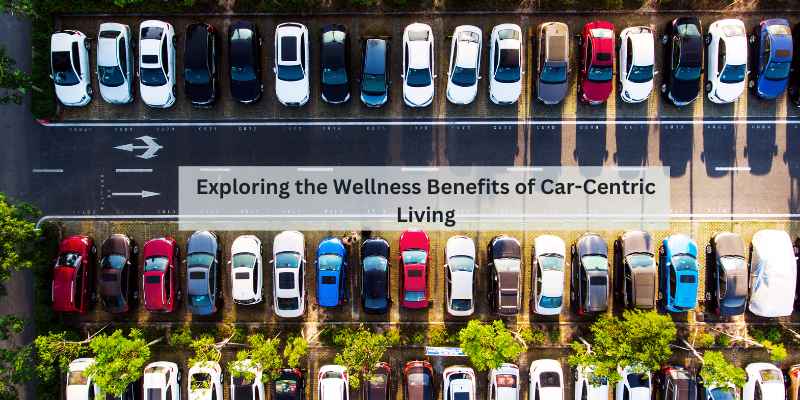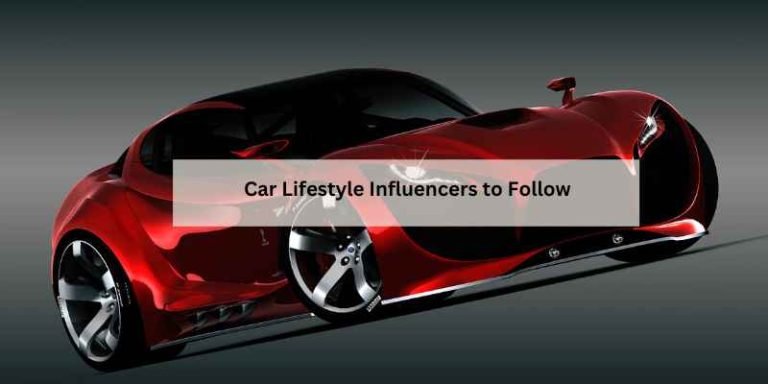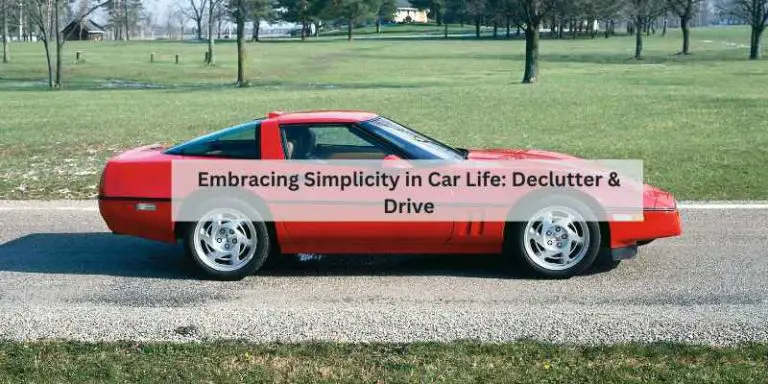Exploring the Wellness Benefits of Car-Centric Living
Exploring the wellness benefits of a car-centric lifestyle reveals the convenience and flexibility it offers in daily activities. Many individuals find that relying on a car for transportation provides a sense of independence and allows them to efficiently manage their time and activities.
Embracing a car-centric lifestyle can contribute to improved mental well-being as it reduces stress related to transportation challenges and time constraints. Additionally, it allows for easier access to recreational activities and healthcare facilities, promoting a more active and balanced lifestyle.
Furthermore, the convenience of car ownership can lead to increased social connections and overall satisfaction with daily life. As we delve into this topic, it becomes evident that a car-centric lifestyle can positively impact wellness in various aspects.
The Rise Of Car-centric Lifestyles
Exploring the Wellness Benefits of a Car-Centric Lifestyle
Shifts In Urban Planning
In recent years, urban planning has witnessed a significant shift towards accommodating car-centric lifestyles. With the increasing popularity of personal vehicles, cities around the world are adapting their infrastructure to cater to the needs of car owners. This transformation in urban planning has had a profound impact on the well-being of individuals.
Personal Vehicles As Status Symbols
One of the key factors driving the rise of car-centric lifestyles is the perception of personal vehicles as status symbols. Owning a car has become synonymous with success, independence, and social status. The desire to own a car has influenced people’s lifestyle choices, leading to a greater emphasis on car-centric living.
With the rise of car-centric lifestyles, it is important to delve into the wellness benefits associated with this way of living. By understanding the impacts of urban planning shifts and the role of personal vehicles as status symbols, we can better appreciate the potential advantages and drawbacks of a car-centric lifestyle.
Convenience On Wheels
Convenience on Wheels is one of the biggest advantages of a car-centric lifestyle, as it enables individuals to move around with ease while carrying out their daily activities. Cars provide the freedom to travel and explore places without worrying about the inconvenience of public transport schedules.
Time Efficiency And Mobility
With a car, individuals can save time and increase their mobility. They can travel faster and reach their destinations on time without having to worry about waiting for public transport or walking long distances. This is especially beneficial for those with busy schedules or medical conditions that require timely transportation.
Accessibility Of Services And Amenities
Having a car also provides easy access to services and amenities that may not be readily available in certain areas. For instance, individuals living in rural areas can access healthcare facilities, grocery stores, and other services with ease. This also applies to individuals living in urban areas who can easily commute to work or school without having to worry about crowded public transportation.
Overall, a car-centric lifestyle provides numerous wellness benefits, including convenience, time efficiency, and accessibility to services and amenities. It is a lifestyle that promotes independence and enhances quality of life.
Health And Wellness On The Go
Health and wellness on the go is a crucial aspect of our modern, fast-paced lives. With the increasing reliance on cars for commuting and travel, it’s important to explore the impact of this car-centric lifestyle on our overall well-being. From mental health advantages to balancing sedentary lifestyles, let’s delve into the various dimensions of wellness associated with being on the move.
Mental Health Advantages
Embracing a car-centric lifestyle can have positive effects on mental well-being. The convenience and comfort of traveling in a car can reduce stress and anxiety related to commuting. It provides a sense of control over the environment, offering a space for solitude and relaxation, which is essential for mental rejuvenation.
Physical Health: Balancing Sedentary Lifestyles
While car travel often involves sedentary behavior, there are strategies to maintain physical wellness. Taking regular breaks during long drives, engaging in simple exercises like stretching at rest stops, and ensuring proper posture while driving can mitigate the negative impact of prolonged sitting. Additionally, incorporating walking or cycling for short trips can contribute to a more active lifestyle.
Social Dynamics Of Car Ownership

Explore the positive impact of a car-centric lifestyle on overall wellness through social dynamics of car ownership. Enhancing mobility and autonomy can lead to improved mental well-being and a sense of freedom. Embracing this lifestyle choice can contribute to a healthier and happier life.
Strengthening Family Bonds
Car ownership can be an excellent way to strengthen family bonds. With a car, families can enjoy road trips, explore new places, and create new experiences. Families can also bond over the maintenance of the car, with each family member taking on different responsibilities such as cleaning or checking the oil. Additionally, owning a car can provide a sense of independence for teenagers who may be learning to drive and can create opportunities for parents to teach their children about responsibility and safety.
Networking And Social Opportunities
Car ownership can also provide networking and social opportunities. For example, car clubs and car shows can bring car enthusiasts together, creating a sense of community. Attending these events can provide opportunities to learn more about cars and to meet new people with similar interests. Additionally, owning a car can provide opportunities for networking and socializing while commuting to work or attending events. Carpooling with coworkers or friends can create opportunities for conversation and networking, making the daily commute more enjoyable.
In conclusion, car ownership can have positive effects on social dynamics. From strengthening family bonds to creating networking and social opportunities, owning a car can provide a sense of community and independence.
Economic Impacts On Personal Well-being
The economic impacts of a car-centric lifestyle can significantly influence personal well-being. Reliance on vehicles may lead to increased expenses, reduced physical activity, and heightened stress levels, affecting overall wellness negatively. Embracing alternative modes of transportation can enhance health, financial stability, and environmental sustainability.
Cost-benefit Analysis Of Car Ownership
Personal well-being is influenced by the economic impacts of car ownership.
Financial Freedom And Constraints
Owning a car affects financial freedom and constraints in daily life.
Car ownership involves significant costs like maintenance, insurance, and fuel.
Having a car provides convenience but can lead to financial constraints.
Balancing the benefits and costs of owning a car is crucial for personal well-being.
Consider alternatives like public transport or car-sharing for financial freedom.
Environmental Considerations
Living a car-centric lifestyle has significant impacts on the environment. Let’s explore the various ways in which our personal transport choices can affect the world around us.
Sustainable Practices In Personal Transport
- Opt for carpooling or public transport
- Choose electric or hybrid vehicles
- Support biking or walking for short distances
By adopting these sustainable practices, we can reduce our carbon footprint and promote environmental well-being.
Reducing Carbon Footprints With Car Technology
- Utilize fuel-efficient vehicles
- Embrace eco-friendly driving habits
- Invest in emission control technologies
Modern car technologies offer innovative solutions to minimize emissions and contribute to a cleaner, greener planet.
Technological Innovations And Comfort
In the modern world, technological advancements have transformed the way we experience comfort within our vehicles. These innovations have not only enhanced our driving experience but have also contributed to our overall well-being. Let’s explore how technological innovations and comfort intersect in the realm of a car-centric lifestyle.
Advancements In Vehicle Comfort
With a focus on creating a more comfortable driving experience, vehicle manufacturers have made significant strides in improving the interior design and features of cars. From ergonomic seating to customizable climate control, the emphasis on comfort has led to a more enjoyable and relaxing time behind the wheel.
Smart Features For Health And Safety
Integrated smart features in modern vehicles are designed to prioritize the health and safety of both the driver and passengers. These features include advanced air filtration systems, posture-correcting seats, and adaptive lighting to reduce eye strain, contributing to a healthier and more comfortable driving environment.
Future Of Car-centric Living
The future of car-centric living is undergoing a transformation, with emerging trends in urban design, wellness, and transportation policy shaping the way we interact with our surroundings. As cities evolve to prioritize sustainable and healthy living, new opportunities are emerging for individuals to engage with their environments in ways that promote well-being and connectivity.
Emerging Trends In Urban Design
Urban design is embracing a shift towards creating pedestrian-friendly spaces, incorporating green infrastructure, and reimagining the use of public areas to foster community interaction. By prioritizing walkability and bikeability, cities are promoting physical activity and reducing reliance on cars, ultimately contributing to improved overall wellness.
Wellness And Transportation Policy
Transportation policy is increasingly integrating wellness considerations, focusing on enhancing public transit options, promoting active transportation, and reducing traffic congestion. By investing in public transportation and implementing policies that support alternative modes of commuting, cities are striving to enhance the physical and mental well-being of their residents while reducing environmental impact.

Frequently Asked Questions
What Are Two Ways That Our Current Car-centric Society Is Impacting Public Health?
Our car-centric society is impacting public health in two ways. Firstly, air pollution from vehicles is causing respiratory and cardiovascular diseases. Secondly, sedentary lifestyles due to car dependence are leading to obesity and related illnesses.
What Is The Meaning Of Car-centric?
Car-centric refers to a focus on cars in design, planning, or culture. It means prioritizing cars over other transportation options.
What Are The Effects Of Car-centric Cities?
Car-centric cities have negative impacts such as traffic congestion, air pollution, noise pollution, and urban sprawl. They also discourage walking and cycling, leading to health problems and social isolation. Additionally, car dependence increases greenhouse gas emissions, contributing to climate change.
A shift towards sustainable transportation options is necessary for creating livable and healthy cities.
What Are The Health Benefits Of Driving?
Driving offers several health benefits. It improves mental alertness and cognitive function. It also enhances hand-eye coordination and reflexes. Additionally, driving can reduce stress levels and improve overall well-being. So, hop in the car and enjoy the health benefits of driving!
Conclusion
To embrace a car-centric lifestyle is to unlock a world of wellness benefits. With the convenience of transportation at our fingertips, we can easily incorporate physical activity into our daily routines. Walking or biking to nearby destinations not only improves fitness levels but also reduces stress and promotes mental well-being.
Additionally, the freedom to explore new places and engage in outdoor activities enhances our overall quality of life. By prioritizing an active and car-centric lifestyle, we can nourish our bodies and minds, creating a harmonious balance between our well-being and the environment.







